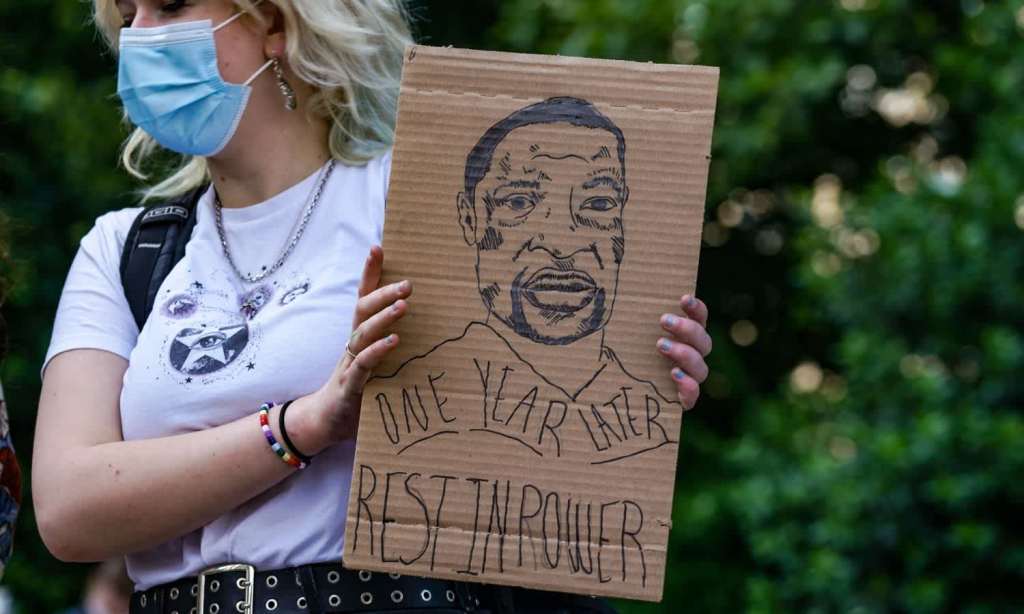Twelve months ago, the world witnessed the murder of a Black man at the hands of the people who are supposed to protect and serve the community. We watched, heartbroken and disbelieving, as the man repeatedly told his oppressors that he could not breathe, and pleaded for his mother.
The man, of course, was George Floyd. His crime was being Black in America.
On that same day, 1939km away from Minneapolis where Floyd lost his life, a white woman in New York’s Central Park called the police on a Black man, Christian Cooper, with whom she had taken issue after he had politely asked her to control her dog.
The footage from this incident also went viral as the woman called 911 — knowing exactly how to inflect her voice in order to sound threatened while almost gleefully staring at Cooper in contempt. The woman used a system that she knew existed to her advantage, simultaneously capitalising on the colour of her skin while weaponising his.
The fact that Christian Cooper did not also lose his life that day is, quite frankly, nothing short of a miracle.
Back in Minneapolis, after an agonising eight minutes and 46 seconds, George Floyd’s cries for his mother subsided before he fell silent.
And that is when the world decided to finally speak up.
You’ll well remember the protests that were organised first in America, then Europe and even here in Australia where Floyd’s death incited further calls for us to reckon with our own treatment of our Bla(c)k citizens. People protested, petitions were circulated, black squares were posted on Instagram and donation drives were promoted far and wide.
GoFundMe campaigns for Floyd’s family to cope with the legal costs of seeking accountability for his death, legal funds for protesters who were often attacked by police for exercising their democratic right and collections for organisations such as Colour of Change, the NAACP (National Association for the Advancement of Coloured People) and Black Lives Matter were encouraged across social media. All the while, accompanied by pleas to Say. Their. Names.
Breonna, Daunte, Rayshard, Daniel, George, Atatiana, Aura, Stephon, Botham, Philando, Freddie, Ahmaud, Elijah, Sandra, Eric, Janisha, Michelle, Akai, Tamir, Trayvon, Michael…these are just a few of the members of the Black community who are no longer with us, lost at the hands of the people who we trust to uphold the law.
Many of us were inspired to commit to educating ourselves on the issues of institutional racism and how we, however inadvertently, had contributed to the systems designed to keep Black people oppressed and white ones powerful. Books such as The New Jim Crow by Michelle Alexander, White Fragility by Robin DiAngelo, So You Want to Talk About Race by Ijeoma Oluo and When They Call You a Terrorist by Patrisse Khan-Cullors and Asha Bandele became recommended reading while documentaries such as Ava DuVernay’s 13th were required watching.
We were encouraged to listen as leaders in the Black community told us what they had known for 400 years to be true — that the colour of their skin puts them in danger every single day thanks to centuries of white supremacy upheld by everything from banking and educational institutions to the media we consume and all of the microaggressions and outright violence in between.
A year on from the day that pushed the world into action, the man responsible for Floyd’s death has been found guilty of second-degree murder, third-degree murder and second-degree manslaughter in what will hopefully be the beginning of the end of police immunity.
And yet, also in the 365 days since George Floyd was murdered, at least 229 Black people have been killed by police in America. 229 human beings who were taken at the hands of people that knew the world was watching them like never before. If that isn’t white privilege then I don’t know what is.
So, what has really changed since we marched and signed and watched and read and posted and committed to allyship?
The answer to that is not mine to give. It is not mine to give because I am not Black. I have never been turned away from a job, rental property, shop or educational institution because of the colour of my skin. I have never walked through the world feeling acutely aware that my body, the vessel tasked with keeping me alive, could be the very reason — the only reason, in fact — that someone might want me dead.
Although the calls to action on social media have fallen by the wayside — replaced with the regular programming of latte art, vacation throwbacks or perhaps similarly important prompts to take action in aiding other humanitarian crises — it is my hope that people are still doing the work and are still playing their part in this ongoing fight.
However, only the Black community themselves can tell us what, if anything, has actually changed. It is not up to us to say “look how far we’ve come” or pat ourselves on the back for any progress that has been made in the year since George Floyd lost his life before the eyes of the world. We didn’t “fix racism” when Barack Obama was elected President and I’m 100% certain we have not “fixed it” now.
We all still have a job to do and that job is — and has always been — to acknowledge our roles in perpetuating a broken system and wholeheartedly accept our responsibility in dismantling it.
Read more stories from The Latch and subscribe to our email newsletter.







